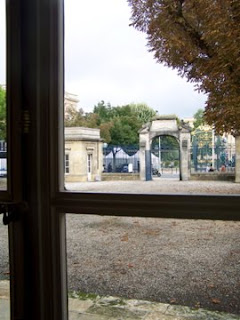
Before going on, jot down in the space below some of the skills-they are usually attitudes, ways of responding, and styles of behaving-which you might think to be most helpful in the overseas adjustment process.
Here are the skills that our experience has shown to be the most important:
• TOLERANCE FOR AMBIGUITY
• LOW GOAL/TASK ORIENTATION
• OPEN-MINDEDNESS
• NON-JUDGEMENTALNESS
• EMPATHY
• COMMUNICATIVENESS
• FLEXIBITY; ADAPTABILITY
• CURIOSITY
• SENSE OF HUMOR

• WARMTH IN HUMAN RELATIONS
• MOTIVATION
• SELF-RELIANCE
• STRONG SENSE OF SELF
• TOLERANCE FOR DIFFERENCES
• PERCEPTIVENESS
• ABILITY TO FAIL
Now circle the traits you think are the most important (or guess what our choices are - it’ll be no surprise that we’re going to tell you).
Our choices:
1. SENSE OF HUMOR
2. LOW GOAL/TASK ORIENTATION
3. ABILITY TO FAIL
Americans abroad too often undertake tasks that are unrealistic and set goals for themselves that are unattainable. It is one of the major causes of failure. To the extent that you set your goals too high and refuse to adjust them to the realities of what can actually be accomplished in a foreign environment, you’re going to be disappointed. Experience shows that Americans who are less goal-oriented or task-driven, and more able to relax and ride with events tend to be more effective and enjoy themselves overseas.
The ability to tolerate failure is critical because: 1) everyone fails at something overseas; it is absolutely built in, 2) the highest stars in the American firmament are “achievement” and “success”, and 3) the American most likely to be selected to go overseas is the person who has been most successful at home. Some people sent abroad will have virtually never experienced failure. If, in addition, they have little tolerance for it, they are in for trouble as are those who work for or live with them.
One of the largest international cultural exchange organizations in the U.S. uses “sense of humor” and “the ability to fail” as principal selection criteria for the thousands of people they choose for international exchanges.
Source Survival Kit for Overseas Living, Third ed., by L. Robert Kohls, 1996


 Finally (and it wouldn't be France without it)--
Finally (and it wouldn't be France without it)-- I'm studying abroad in France right now: the country most well-known for their sophisticated appreciation for good food and wine.
I'm studying abroad in France right now: the country most well-known for their sophisticated appreciation for good food and wine.











